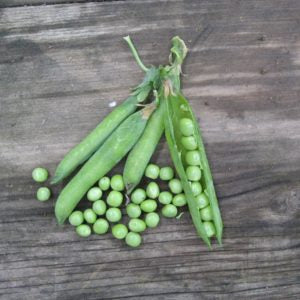 Blushing Lady Narcissus
Blushing Lady NarcissusWe love this quote from one of our favorite gardeners, Margaret Roach, who has this to say about March: "Make like a daffodil. Poke your head up and have a look around—but be prepared to abort the mission, perhaps several times, and even get snowed on. Be nimble, ready to act when the forces are willing, but be patient, too, especially up North."
Margaret's words couldn't feel more real as the balmy days of earlier this week are replaced by the expectation of 6+ inches of snow. Luckily, while March is often unpredictable, there are plenty of brave seeds unafraid of the weather and ready to get to work!
Today, we'll feature varieties you can direct sow in March. Stay tuned for next week when we'll cover early indoor starting varieties.
Varieties to Direct Sow in March
Cold-loving flower varieties should be sown as early as possible to catch the tail-end of of the cold to ensure good germination, including Johnny Jump-Ups, Milkweed and Poppies.
March 17th marks St. Patrick's day, a traditional marker of when peas and other hardy crops go into the ground, as long as the soil is ready to be worked! We know this much-used phrase can seem pretty nebulous. It means when the soil has recovered from the winter freeze. The top several inches should be dry and crumbly enough that the soil doesn't stick as you run a tool across the surface but instead falls away in small chunks or crumbles. The following varieties can all be sown as soon as soil can be worked.
- Peas! For the full scoop on which of our pea varieties is right for you, see our Pea blog, with notes directly from our trial gardens.
- Wild Arugula - this cool-loving green doesn't particularly love mid-summer but it will do well for most of the season so keep on sowing! Harvest when young for fresh use or when slightly older for braising.
- Bloomsdale Spinach - these succulent, slightly savoyed leaves are our earliest new growth greens. Direct sow anytime soil can be worked in the cooler months, from about 6 weeks before first fall frost until the date of your last spring frost. Harvest promptly, especially in late spring, when it tends to bolt under heat pressure.
- Evergreen Scallion - while these can be overwintered, spring scallions can be direct sown 4 weeks before your last frost date, or up to 12 weeks if started indoors. We love the versatility of scallions - simply chop and use to garnish almost any dish!
- Radishes - one of the oldest cultivated crops, radishes are said to hail from Egypt and their name comes from the Latin word "radix" meaning root. We love their color and variety, particularly the aptly named Easter Egg Radish.
Ready to get started? Explore these related products:











